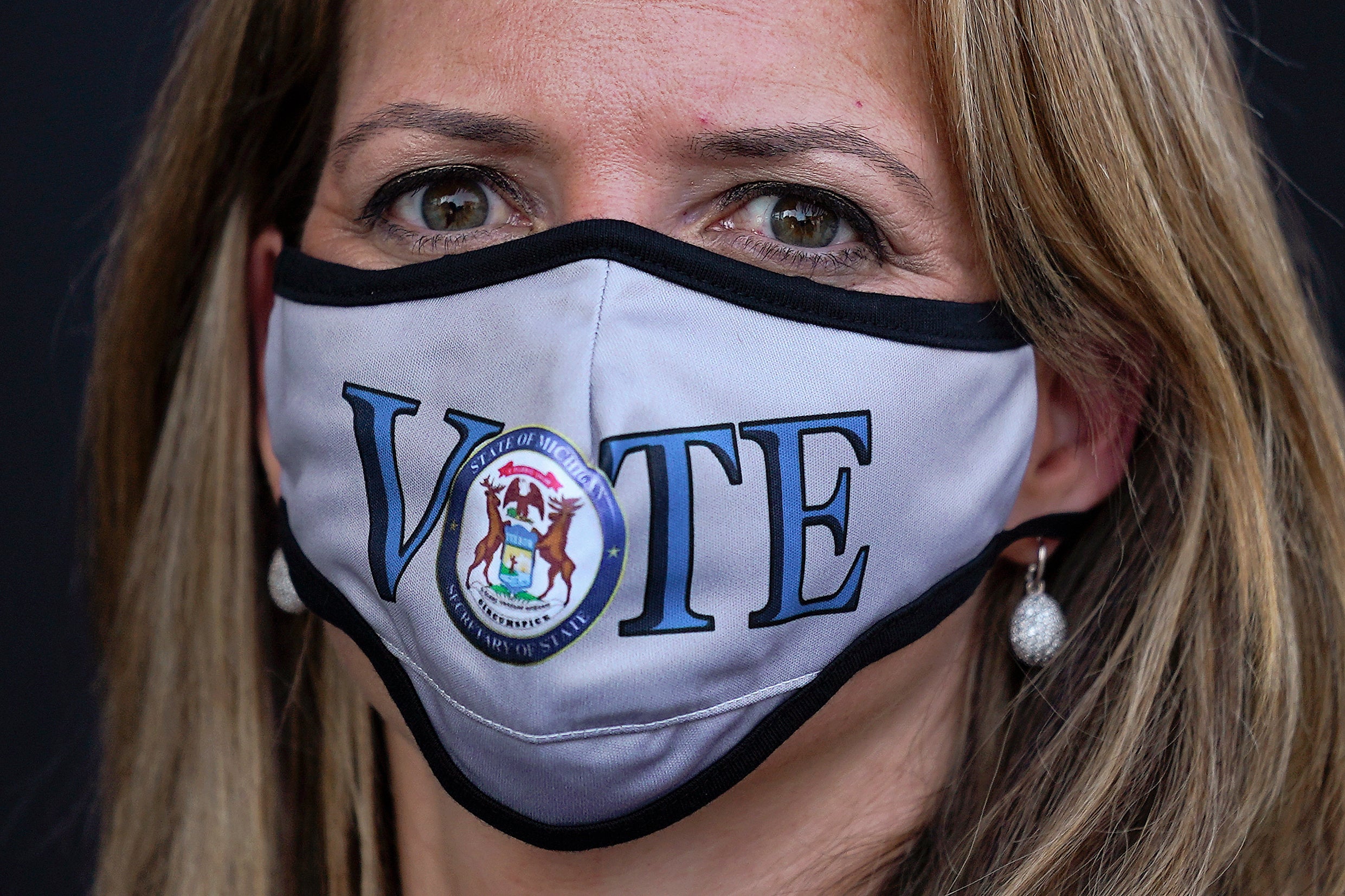Michigan election head: Drop off absentee ballot, don't mail
Michigan’s top elections official says the presidential battleground state’s 1.5 million people with absentee ballots still in-hand should put them in a drop box or take them to their local clerk’s office instead of risking sending them by mail with two weeks to go until Election Day

Your support helps us to tell the story
From reproductive rights to climate change to Big Tech, The Independent is on the ground when the story is developing. Whether it's investigating the financials of Elon Musk's pro-Trump PAC or producing our latest documentary, 'The A Word', which shines a light on the American women fighting for reproductive rights, we know how important it is to parse out the facts from the messaging.
At such a critical moment in US history, we need reporters on the ground. Your donation allows us to keep sending journalists to speak to both sides of the story.
The Independent is trusted by Americans across the entire political spectrum. And unlike many other quality news outlets, we choose not to lock Americans out of our reporting and analysis with paywalls. We believe quality journalism should be available to everyone, paid for by those who can afford it.
Your support makes all the difference.Michigan s top elections official said Tuesday that the presidential battleground state's 1.5 million people with absentee ballots still in-hand should put them in a drop box or take them to their local clerk's office rather than risk sending them by mail with two weeks to go until Election Day.
Secretary of State Jocelyn Benson said hand-delivering a ballot will ensure it will arrive by 8 p.m. on Election Night and be counted. She also urged people who still want an absentee ballot to request it in person from their clerk instead of by mail, and she defended her recent directive clarifying that openly carrying a gun is not permitted in or within 100 feet of polling places, clerks' offices and absentee counting boards on Election Day.
“We want to ensure that every valid vote counts and is received on time,” Benson, a Democrat, told reporters.
As of Tuesday, more than 3 million absentee ballots had been requested in the state and more than half of those had been returned. People can vote absentee for any reason under a 2018 constitutional amendment approved by voters.
Benson has projected a total turnout of 5 million votes, which would be roughly equal to the state record set when Barack Obama first won in 2008. Michigan State University political scientist Corwin Smidt released an analysis Tuesday projecting a turnout of 5.9 million, which would be 1 million more than the nearly 4.9 million votes cast when Donald Trump narrowly carried the state in 2016.
“These predictions are very high — way too high, honestly,” Smidt wrote. “But the same model and approach yielded similarly unrealistically high predictions before the November 2018 midterm and before the presidential primary this March, but these respectively turned out to be a slight underestimate and accurate.”
Benson said Michigan is on track to see more than two-thirds of ballots cast early, easing officials' efforts to minimize crowds and long lines on Election Day during the coronavirus pandemic. She projected that 2 million people would vote in person on Nov. 3, down from 3.6 million four years ago.
“That's an important thing. You're not seeing that in every state, but it's something we've done successfully in Michigan and that we're on track to see successfully on Election Day,” Benson said.
She held a virtual news conference days after issuing the gun guidance, saying the open carrying of firearms can create a threatening environment. She said the state police would enforce the ban in places where local sheriffs or police are unable or unwilling to do so.
The National Rifle Association has criticized her decision and a separate gun-rights group in Michigan has threatened to sue.
Asked if she was concerned that her move could backfire and spur additional people to defy the instructions by showing up armed, Benson said clerks and others had expressed concerns about threats and harassment on Election Day.
She said it was important to provide clarity to police, poll workers and voters.
“We want to make sure people are safe and they're not fearful that if they vote in person on Election Day, that anything bad is going to happen,” Benson said.
___
AP’s Advance Voting guide brings you the facts about voting early, by mail or absentee from each state: https://interactives.ap.org/advance-voting-2020/
___
Follow David Eggert at https://twitter.com/DavidEggert00